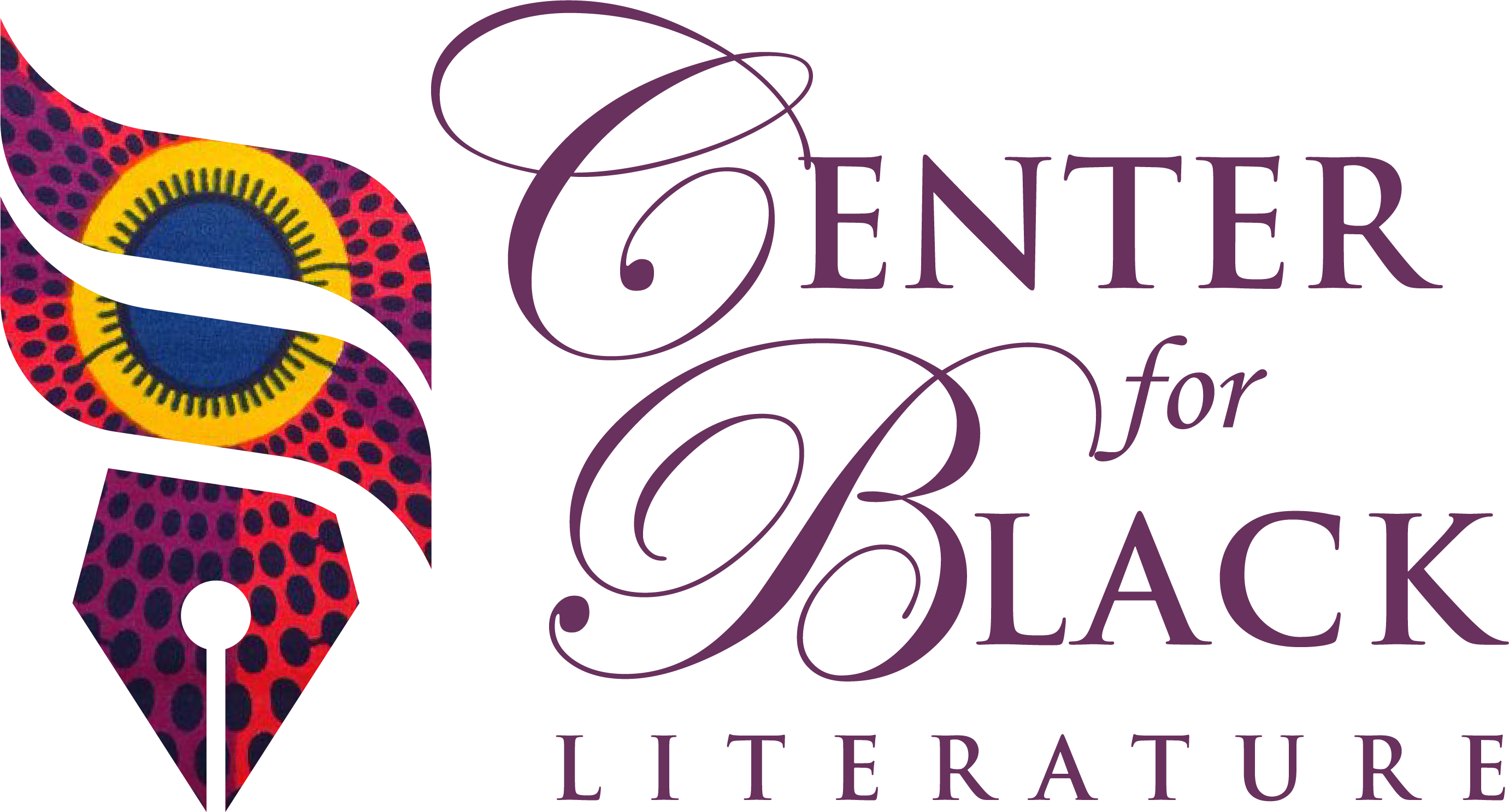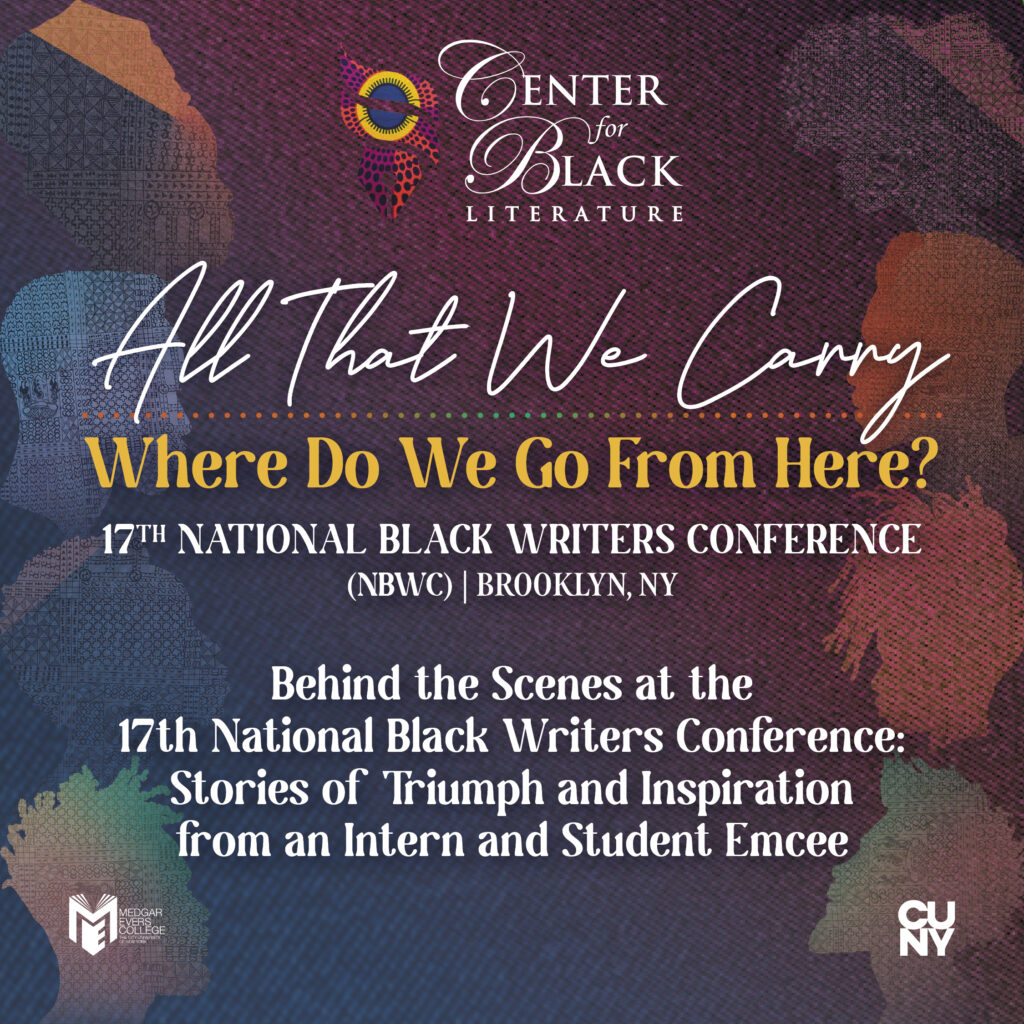Levi Wise-Catoe | April 29, 2024
Many people do not understand all the details and hard work that goes into putting on an extravagant event like the 17th National Black Writers Conference—but detailed oriented it was. Everything from the weekly Steering Committee to the regular Zoom conferences indicated that this was serious business and an undertaking worthy of the event. I couldn’t wait for the Tuesday evening Steering Committee meetings just to develop as an event planner. Every detail—from producing media and emailing volunteers to the welcoming committee, VIP handlers, and Promotional advertisements—had to be accounted for. I assisted in any way that I possibly could because week after week I became more interested in how not only the Center for Black Literature functioned but also how event planning functioned. I looked forward to expanding my knowledge of social media and spreadsheets and anything else that I had to master for the event to reach a wider audience. I wanted everybody in the world to be at the 17th National Black Writers Conference because it would be a testament to the hard work that I and everyone else was putting in, and most importantly the hard work that I had put in.
My work week began on Tuesday, March 19, the last day of the Steering Committee meeting that I could not attend due to the fact that I had a 5:00 appointment with HR to complete my Teaching Artist application. I really regretted not being at that last minute because I felt as if I entered into the conference unsure about where to go; I knew that I would be doing Scholarly Papers, and I was asked to be part of Call-n-Response but I wasn’t sure about being a part of the Youth Summit, which also took place on Wednesday morning during Scholarly Papers, or if I would be needed throughout the conference elsewhere; in other words, I was confused…
Pre-Conference began on Tuesday, March 19th. It was said to have been a lively affair of “Art, Play & Joy: A Revolutionary Act of Faith & Healing” that I couldn’t attend because I was not on campus that night due to the fact I had a virtual class at the same time. There was also a Poetry Slam that took place that would prompt the conference director to say “We may need to create a First Friday event at Medgar Evers College monthly” similar to the Brooklyn Museum’s own much heralded First Saturday events.
Day One kicked off on March 20, 2024, in the biggest possible way with the explosive Michael Eric Dyson who was in conversation with writer Farah Jasmine Griffith, which I spoke of in more detail in a previous review. By Day Two I would now be taking center stage beginning with the conference’s early morning “Re-Envisioning Our Lives Through Literature (ROLL) Youth Summit” event that my students from Clara Barton High School would be attending with writer Jason Reynolds. I was going to be speaking as the Emerging Scholar at the Virtual Scholarly Presentations before noon.
I woke up Thursday morning and it was a nightmare. I had no running water and noticed that Housing Inspectors were coming to inspect my apartment. I was a bundle of nerves because the Scholarly Papers event was streamed on Zoom and the last thing that I wanted to hear was someone yelling “HOUSING…” with a loud police knock on my door during my taping. I couldn’t shave because I had no running water. I was famished—I hadn’t eaten because I had no idea that the water would be shut off. Coming from the theater I had to view this event as a performance and imagine that I was on a stage, knowing that this would be the only way to overcome my embarrassment—on the one hand, of feeling dirty and unclean, and on the other, fearing being embarrassed by a loud bang on my door. I recorded myself all morning as I would if I were acting—listening to myself, timing myself, and then positioning myself from the phone to see where the light was coming from in my apartment and determining my best angle to record myself speaking so I had nothing to share with my family of me speaking. So for me, my personal regret regarding the conference is after all the dedication I put into it I wound up not recording myself during the two opportunities I had to shine. But In the end, I was very pleased with myself after my Scholarly Papers and felt the most confident although I was an Emerging Scholar.
Later that evening, I was still a bundle of nerves because the water still had not come on. I felt if I could just soak in a tub I would be able to relax. I again felt disgusting and unclean. I rushed out of my house to attend the Poetry Café and walked all the way up the stairs, my train being an elevated train, only to have to rush back down because I forgot my MetroCard at home. Now I’m running back home, already feeling dirty and musky from not washing all day, up 20 flights of stairs to get my MetroCard, and all the way back to 125th from 131st, and now I’m really running late… Again my training in theatrical performance kicked in. I was revising my poems on the train so that I had no idea what I had written—again from nervousness, but for me, nervousness becomes performance. Just like my MetroCard, I left my poems on the podium in an attempt to race out knowing I felt uncomfortable because I still hadn’t washed.
I attended the conference on Saturday, when I arrived around 1 pm. I thought everyone was amazing. Khalil Gibran Muhammad, who was on the “Black Writers’ Letter To America” panel, is literally the man that I wanted to be as an early undergraduate. Before him, I wanted to be a poet and a performing artist, or possibly the Black male ‘Madonna’, because she challenged the status quo, but after him, I also wanted to be a scholar because he studied the reasons why. I wanted to be an intelligent Black man rather than just a creative one. I was introduced to Khalil Gibran Muhammad after he became director of the Schomburg Center for Research in Black Culture, a Harlem-based branch of the New York Public Library system. This was around 2014 and it was a period of enlightenment for me. I had become more curious about Black culture and hearing that he was the great-grandson of the Honorable Elijah Muhammad made me more engaged with who he was. The Schomburg became a place that I often attended and would rarely miss an event and if by chance Muhammad were the moderator it made me even more interested in attending. I wanted to interview in the way in which he interviewed: his style, his laid back yet inquisitive mode of questioning— all of this further intrigued me, because he always knew his facts and proceeded to get the response that needed to be heard. My younger self wanted to be just like him. So for me, this was the panel discussion that lifted me up. Thank you, Professor Donna Hill, Dr. Khalil Gibran Muhammad, Dr. Greene, and the entire Center for Black Literature team and Steering Committee for the invaluable lessons I learned.

